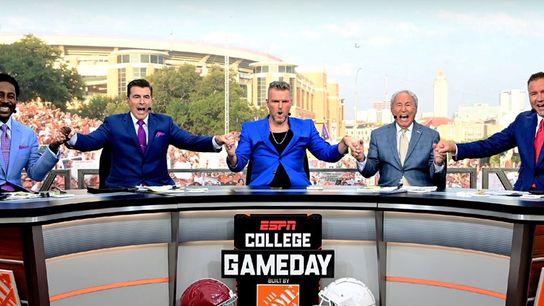Since 1961, when Congress passed the Sports Broadcasting Act, professional sports leagues in the United States have enjoyed antitrust protections in order to negotiate broad-based television broadcasting deals for entire entities, such as the NFL.
Now that the NFL is routinely televising games on every day of the week except Tuesdays and Wednesdays, U.S. Senator Ted Cruz is urging the Senate Commerce Committee to take a closer look at these protections -- and to potentially afford similar guidelines to college athletics.
"(Tuesday's) hearing about sports broadcasting isn't just a Texas issue; it's a national one. In an era of deep partisan division, sports might be the most powerful cultural unifier we have. ...
"But those millions of fans are asking a simple question: 'Why does it seem to be getting harder -- and more expensive -- to just watch the game?'."
Cruz's remarks to the Commerce Committee, which his office published online, singles out the need for consumers to have multiple "apps" and streaming options to capture all of their favorite teams' contests.
Cruz also wonders aloud in his writing in similar antitrust protections might be beneficial to college athletics, with industry experts saying that affording a conglomerate of college football superpowers -- think Big Ten, SEC and select ACC/Big 12 and a couple of independent programs such as Notre Dame -- might also help facilitate a more uniform broadcast deal that spurs what many believe is college football's next evolution: a 40- to 60-team so-called super league.
The crux of Cruz's sentiments was delivered in the following segment:
"In 1961, Congress enacted the Sports Broadcasting Act to grant professional leagues antitrust immunity as it relates to negotiating national broadcast deals on behalf of their teams. This structure allowed leagues to negotiate from centralized offices in a synchronized manner without violating antitrust law.
“The SBA was intended to ensure that the needs of all sports fans were being met. I think it’s important to regularly revisit and consider whether our laws, like the Sports Broadcasting Act, are fulfilling their intended goals. And if the leagues can show how the SBA continues to benefit fans today, it may be worth exploring whether to give a similar exemption to college sports whose broadcasting rights have no antitrust protection.
“One growing concern is that the NFL has used its special exemption in the SBA to the frustration of college and high school football schedulers. For example, the SBA explicitly excludes antitrust protection for the NFL if broadcasting a game on a Friday night or a Saturday between mid-September to mid-December. That’s to protect the interests of high school and college football, and ultimately, their fans who are no doubt also followers of the NFL.
“The NFL has tiptoed up to this rule, now putting a game on streaming on Black Friday afternoon, which used to be a slot reserved for prominent college football rivalries, including in some years, Texas and Texas A&M. There are millions of sports fans who like being able to follow high school, college, and professional football without having to choose amongst them. And it’s partly why Congress wrote the SBA in the manner it did."
It was just last spring that the expanded College Football Playoff agreed to a long-term broadcasting deal for the FBS playoffs with ESPN through 2031 that guaranteed exclusive rights to ESPN -- at a cost of nearly $8 billion through 2031.
However, already that deal has been targeted as potentially already outdated; the CFP has openly discussed an additional expansion to 14 or 16 teams as soon as the 2026 college football season; the 12-team CFP is only guaranteed to exist through the upcoming '25 campaign.
Additionally, as reiterated at last week's National Football Operations Organization meetings in Frisco, Texas, the college bowl season -- and its corresponding broadcasting and conference-affiliated deals -- also is coming to an end of its present deal at the conclusion of the upcoming season.
